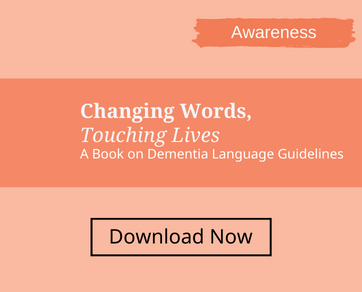There are several stages of dementia. In all types of dementia, memory problems are the early signs. The deterioration in cognitive skills is gradual and in later stages, daily activities will become increasingly challenging without assistance.
Activities of Daily Living
Mild Dementia
• Still able to care for self in basic activities of daily living, i.e. personal hygiene, dressing
• May have some difficulty with:
⇒ Taking public transportation
⇒ Money management
• May have difficulty planning and managing household tasks such as cleaning and cooking
• May have difficulty initiating activities
Moderate Dementia
• Needs regular reminders and prompts in daily tasks
• Requires assistance with dressing, personal hygiene, going to the toilet, eating, and some other daily activities.
• High risk of falling
Advanced Dementia
• Unable to care for self. Total dependence in taking care of own hygiene, eating, going to the toilet, and taking a shower
• Problems with balance, coordination, resulting in instability and falls
• Likely to have mobility issues, could be bed-bound
• Eating and swallowing problems
• Loss of bladder and bowel control
Behaviours
Mild Dementia
• Apathy; lack of interest in activities they used to engage in
• May become socially withdrawn
• Rapid mood changes or have low mood
Moderate Dementia
• Wandering
• Repetitive actions/ questions
• Sleep reversal
• Frustration at not being able to communicate well
• May appear depressed, and more easily upset, frustrated, agitated, and suspicious
Advanced Dementia
• Crying, shouting or repetitive vocalisation as a means to communicate needs
• Refusing care due to confusion
• Passive/ withdrawn
Cognitive Decline
Memory
Mild Dementia
• Forgetfulness (Difficulty with short-term memory)
• Impaired judgement
• Impaired abstract thinking
• Misplacement of items
Moderate Dementia
• Difficulty with short- and long-term memory
• May begin to forget or be unable to recognise certain family members
• May begin to be unable to remember own address or phone number
Advanced Dementia
• No apparent awareness of past or present
• Inability to recognise current self
• Inability to recognise common objects
Mild Dementia
• Difficulty in following storylines and conversations
• Difficulty finding the right words or remembering names
Moderate Dementia
• Difficulty in communication due to repetitive speech or inability to understand contexts
• Difficulty in expressing emotions and making needs known
Advanced Dementia
• Unable to communicate through language
• Unable to engage in meaningful conversations
• May not be able to communicate or may be unresponsive at times
• Incoherent speech
• May express needs by yelling
Calculation
Mild Dementia
• Problems with handling finances
Moderate Dementia
• May have problems performing simple calculations
Advanced Dementia
• Unable to perform any calculation
Disorientation
Mild Dementia
• May occasionally feel disoriented, but may be able to navigate frequently visited places
• May get lost in less familiar places
Moderate Dementia
• May experience confusion in general; may have poor orientation to day, date and/or time
• May get lost outdoors, even in familiar places
Advanced Dementia
• Unable to differentiate day and night
• May get lost at home
Tell us how we can improve?
- Alzheimer’s Society. (2021, February 24). The progression and stages of dementia. https://www.alzheimers.org.uk/about-dementia/symptoms-and-diagnosis/how-dementia-progresses/progression-stages-dementia#content-start


